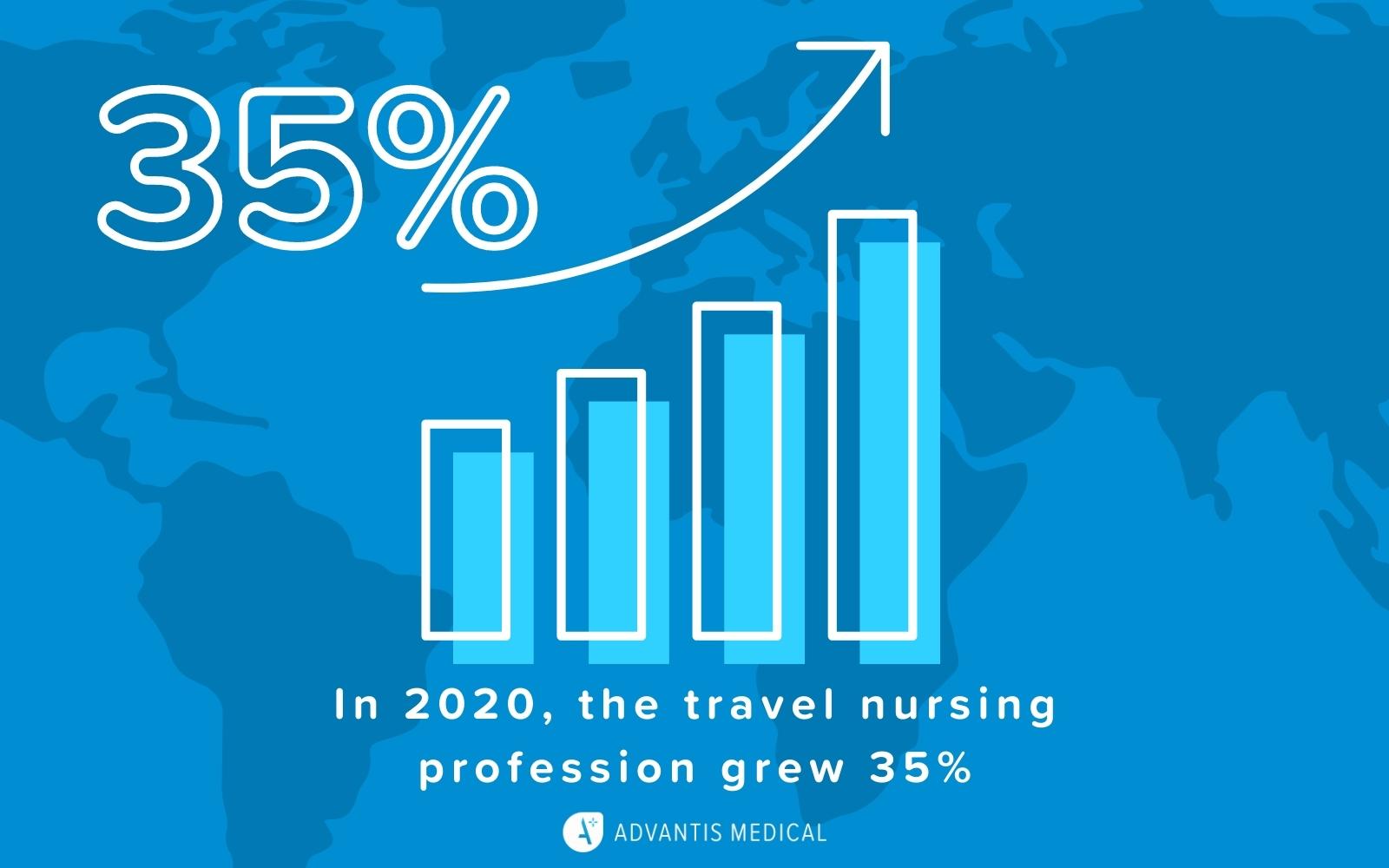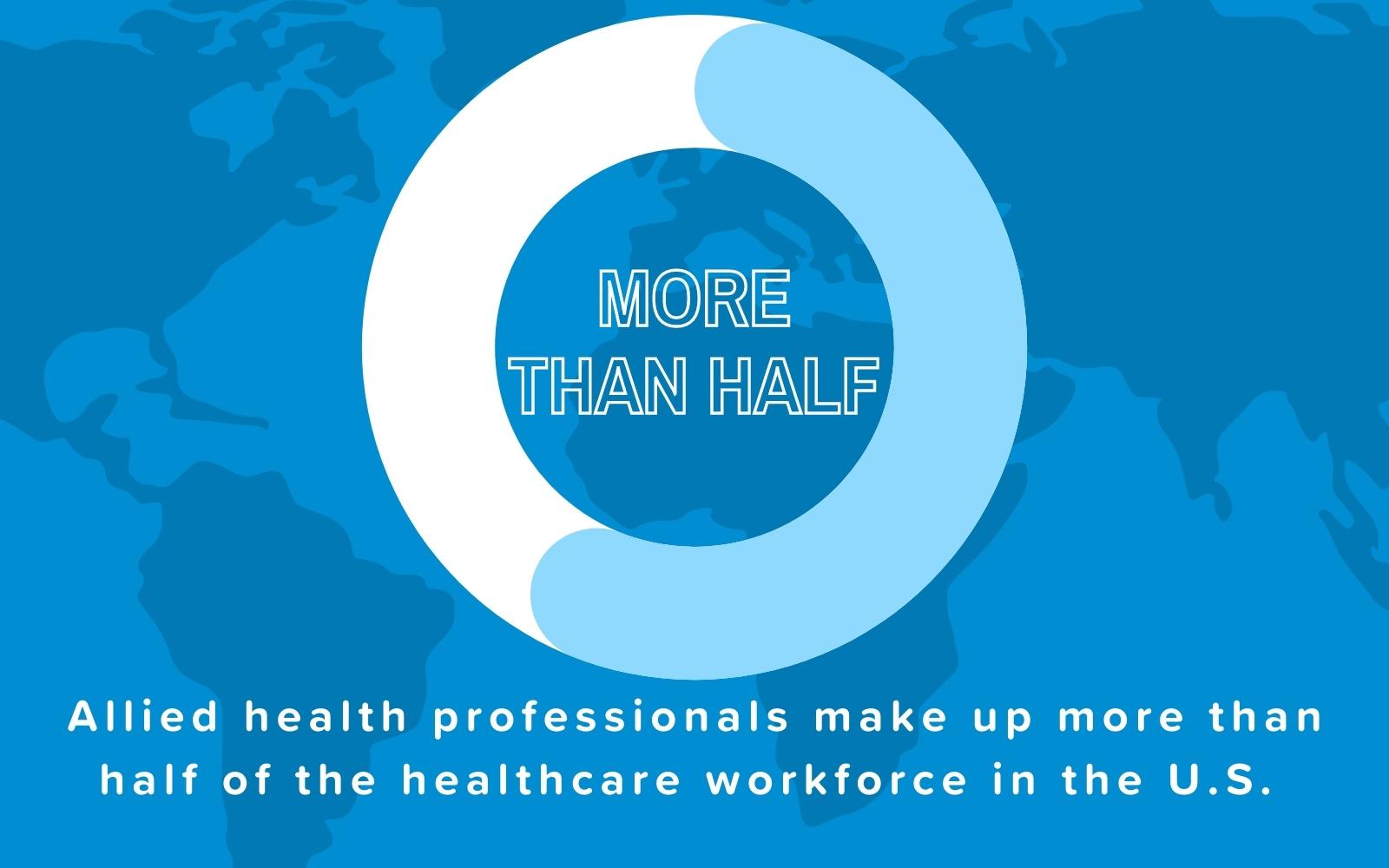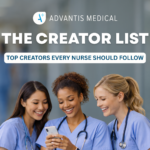The pandemic created an urgent demand in healthcare staff and a major surge in travel nursing to care for the unexpected influx of infected patients. In 2020, the travel nursing profession grew 35% as nurses were drawn to pay rates never seen before in the history of travel nursing. But nurses can’t do their jobs alone and hospitals can’t function without ancillary support. Healthcare requires a collaborative approach and the skillsets of multiple departments. While nursing may be your first thought when it comes to travel positions, there is also a gap to be filled by other support staff. If you are a healthcare worker in an allied health career or aren’t sure if travel jobs exist for you, keep reading to find out more.

What Is Allied Health?
Allied health professionals make up more than half of the healthcare workforce in the U.S. These roles are distinct from nursing and include the support roles in hospital settings, but also other medical roles such as dental hygienists, athletic trainers, and dieticians. Allied health staff work as a multidisciplinary team with nurses and physicians to assist with the delivery of healthcare and the prevention or treatment of diseases and disorders. These roles are vital to the healthcare system and to the holistic care of patients.

Requirements for Allied Health Jobs
The most common allied health travel jobs are found in hospital settings. These include certified nursing assistants, therapy roles such as physical and occupational therapists, and imaging specialists like radiology technicians. Other “behind the scenes allied health jobs include pharmacists, laboratory technicians, and operating room technicians.
The requirements for allied health travel jobs are similar to those of travel nurses. Most roles will require a minimum of 1 year of experience in the specialty you are applying for. You must also possess a license in the state you will be working in. (Almost all agencies will help you in obtaining a license if needed.) Most healthcare jobs also require BLS certification as a basic requirement. Some roles may also have required testing. A telemetry monitor technician, for example, may need to pass an EKG rhythm exam before beginning a travel assignment.
The Benefits of Allied Health Travel Jobs
Allied health staff are deserving of the same benefits as travel nurses. While this may vary depending on the agency you choose to work with, you can generally expect:
- Insurance packages (many start day 1!)
- Weekly pay
- 401K or other retirement options (these usually require long-term employment with the agency)
- Reimbursement for travel expenses and licensing
- Free continuing education
Travel Nursing vs. Allied Health Pay
The biggest difference between travel nursing and allied health travel jobs is pay. In general, most allied health roles pay less than nursing roles. This is true in permanent positions as well as travel assignments. On the other hand, pay depends on the specialty and role the same as it does in nursing. Travel nurses working in critical care or highly specialized areas receive higher pay packages than nurses who work in med/surg. In allied health jobs, those who work in “assistant roles will receive less compensation than those with more advanced education. For example, a physical therapy assistant will earn less than a physical therapist.
That being said, those in allied health travel roles will earn more than their colleagues in permanent positions. This is the biggest draw to traveling. Pay will also depend on the location and need of the facility. Crisis assignments that need staff immediately due to a specific patient population, lack of staffing (or even a pandemic) will net the highest pay. Use caution with these contracts as they often come with long hours and heavy workloads.
While it isn’t possible to give an exact number regarding pay because of the many factors related to experience, location, and agency, here is an example:
According to the Bureau of Labor Statistics, respiratory therapists can expect an average annual salary of $65,000. Currently, there are over 600 respiratory therapy travel jobs and thousands of travel nursing jobs listed on Advantis Medical’s travel portal. Most of them offer a pay package over $3,500 per week. That’s equivalent to an annual salary of $182,000, almost three times the salary of a permanent position!
Finding an Allied Health Travel Job
The process of finding an allied health travel job is the same as it is for travel nurses. There has never been a better time to start traveling as there is no shortage of contracts. The first step is to find an agency that has jobs you’re interested in or best fits your needs. You’ll then be connected to a recruiter who will provide you with 1:1 support to find the perfect location and job for your specialty. If needed, they may also assist with any required credentialing, licensing, and housing.
Advantis Medical offers competitive pay as well as the benefits listed above. We offer thousands of travel jobs for allied health workers all over the country. Connect with a qualified recruiter today to find the travel job of your dreams.









